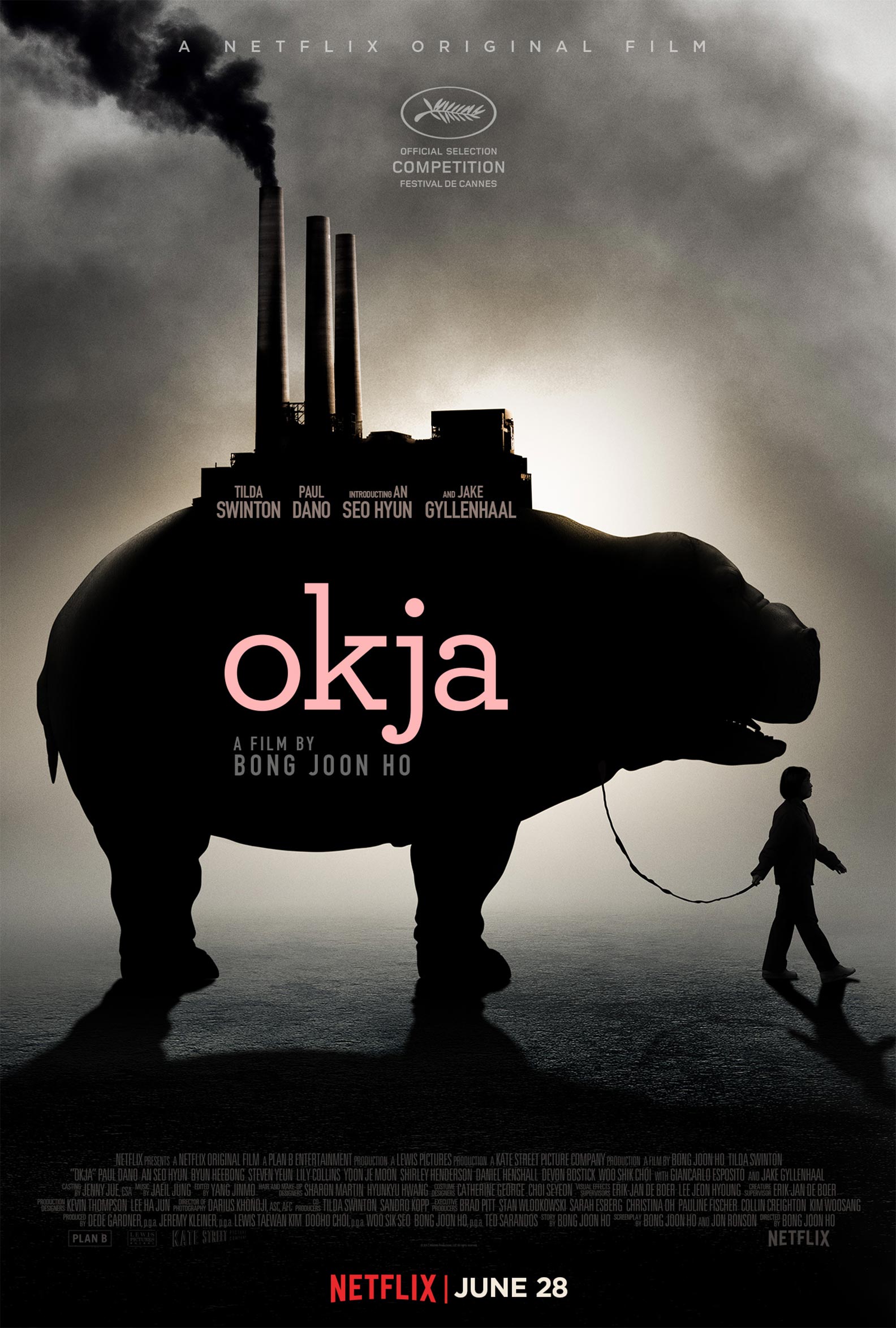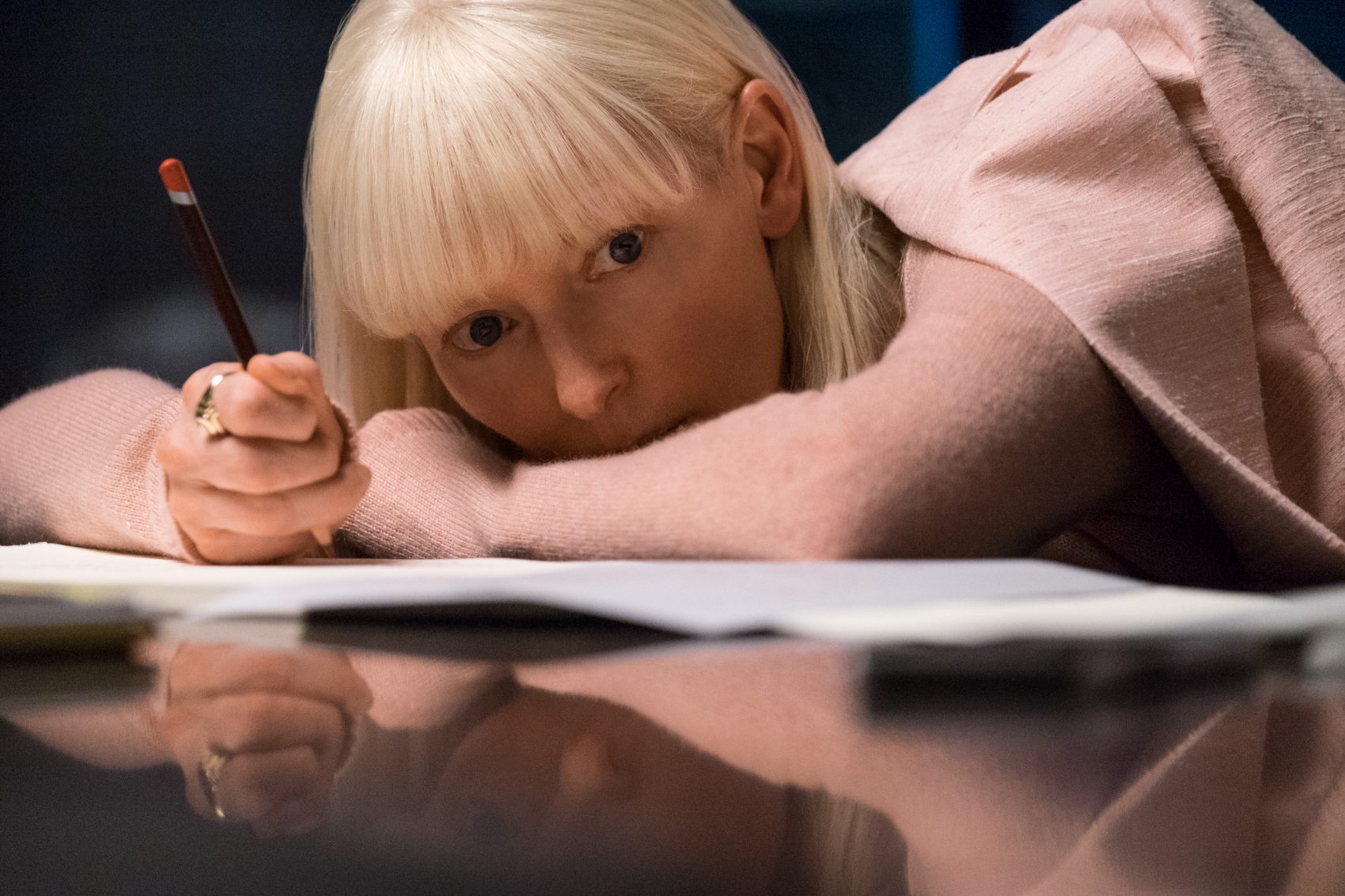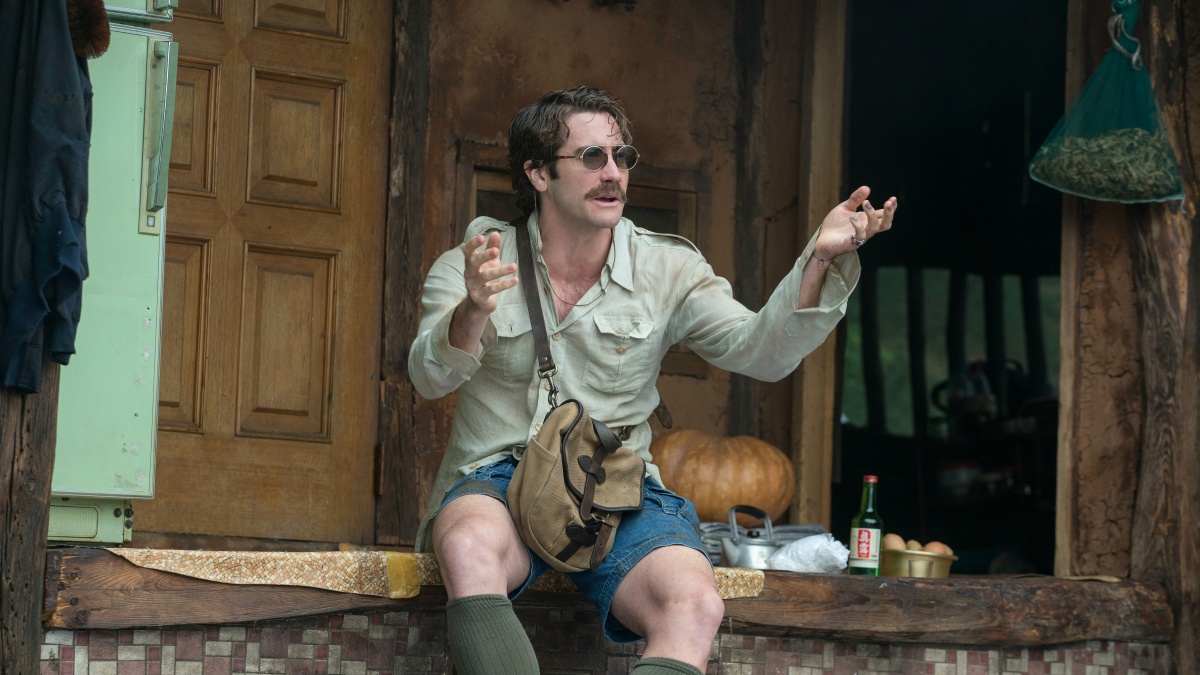Okja
Posted on July 1, 2017 by John Elrod II in Featured, Reviews // 0 Comments
If Studio Ghibli were to make a live action film, I wager they would not be able to concoct such a wonderfully Ghibli-esque film as Bong Joon Ho has with Okja, the tragically delightful story of a young Korean girl, her pig, and their traumatic adventure in the city.
Okja is a Netflix original film directed by the inimitable Bong Joon Ho (The Host, Snowpiercer), which began streaming on the service June 28, 2017. In avoidance of burying the lede, I will implore you right now to watch it. It is absolutely lovely.
I mentioned Studio Ghibli, the Japanese animation studio responsible for classics like Spirited Away, Princess Mononoke, My Neighbor Totoro, my personal favorite Castle in the Sky, and so many others it would be silly to list them all here. The reason I mention the studio is because the comparisons between Okja and those films are begging to be made, and I am so eager to make them. Some of the most common themes of Studio Ghibli films, particularly those from Hayao Miyazaki, are practically spelled out across the screen.
First, a young girl protagonist. From Satsuki and Mei in My Neighbor Totoro, to Kiki in Kiki’s Delivery Service, to Chihiro in Spirited Away, to Sophie in Howl’s Moving Castle, etc. So many of Studio Ghibli’s film are centered on the experience of a young girl, just as Okja focuses its lens on Mija, played by Ahn Seo-hyun. Much like those Studio Ghibli characters, it’s through Mija’s eyes we are shown an innocence interrupted. Whether it’s a sick mother, lost parents, or a stolen pig, the common theme is a carefree child being forcibly made aware of life’s cares.
Along those same lines, age is shown to be a malevolent force; something to be wary of, as you are dragged into its clutches. Okja so vividly captures this in just how both corrupt and inept it paints the adult world. What’s more, Mija is the most capable and self-aware character in the film, and this is an area where Bong Joon Ho’s film does differ from Hayao Miyazaki because Bong seems to often push whimsy just a bit harder than does Miyazaki, while at the same time infusing the film with black comedy. This is something most noticeable in the characters played by Tilda Swinton in both Okja and Bong’s previous Snowpiercer. There’s a quirkiness to these adult characters that would be just as at home in a Wes Anderson film as it is here, but that quirkiness is used to soften the sort of gallows humor they exude which would otherwise make them highly unapproachable for an audience. It’s a mixture you decidedly do not get much of from Miyazaki, and it works brilliantly in Okja, particularly given the next theme.
Technological advancement is killing us all. No, that’s a deliberate exaggeration, but it’s not really that far off. Greed, particularly corporate greed, is the true culprit, and that is certainly a heavy theme Miyazaki has explored, namely in Princess Mononoke and Nausicaa of the Valley of the Wind, and Bong Joon Ho uses a very heavy hand with this one in Okja. Frankly, this is the area where I’d say: if you’re going to have an issue with this film, it’s this, and I wouldn’t blame you. I happen to love it, though, because sometimes heavy issues need a heavy hand to carry them. The issues at hand here-animal activism, scientific ethics, class exploitation-are certainly heavy. At the same time, I could definitely understand if you watch this film and feel like it’s a bit preachy, because it is. The biggest reason, again, I’m alright with the dark elements of this film being so candidly presented is because the corruption of these characters is matched only by their ineptitude.
Okja paints a very black-and-white/right-and-wrong picture of morality, but it works well because the film, much like with Miyazaki, is presented as an experience through the eyes of a child. That’s the innocence, perhaps naivete, of the youth we are seeing so sharply tested.
I could honestly go on for a while longer about the shared themes between this film and those from Hayao Miyazaki and Studio Ghibli, but I’d hate to belabor the point. Bong Joon Ho’s Okja is certainly in the same vein as those Studio Ghibli films, but it also has maybe a splash of Tony Jaa’s The Protector; perhaps a pinch of Orwell’s Animal Farm. Ultimately, though, what makes it great is that unique feeling Bong Joon Ho puts on those familiar elements, just as he did with previous films The Host and Snowpiercer.
Okja, directed by Bong Joon Ho and starring Ahn Seo-hyun, Tilda Swinton, Paul Dano, Jake Gyllenhaal (being absolutely insane), Steven Yeun, Giancarlo Esposito, Lily Collins, and Byun Hee-bong is currently available to stream on Netflix. Aside from the heavy-handedness, I would say the dialogue was the next weakest part of the film; it wasn’t bad, at all, but there were moments where I felt like it went a little clunky and simplistic. Most of the time, though, the dialogue played into the overall ineptitude of the characters delivering it, so it was fine. Oh, and I definitely teared up multiple times and outright rolled a tear at a moment right near the end. It’s got laughs, it’s got action, and it’s got tears. I don’t know about you, but I think that’ll do pig; that’ll do.
Okja
-
Plot – 9/109/10
-
Dialogue – 8.5/108.5/10
-
Performances – 10/1010/10
-
Directing – 10/1010/10
Okja
2017 | Director: Bong Joon Ho | Screenplay: Bong Joon Ho and Jon Ronson | Cinematography: Darius Khondji | Starring: Ahn Seo-hyun, Tilda Swinton, Paul Dano, Jake Gyllenhaal, Steven Yeun, Giancarlo Esposito, Lily Collins, and Byun Hee-bong




